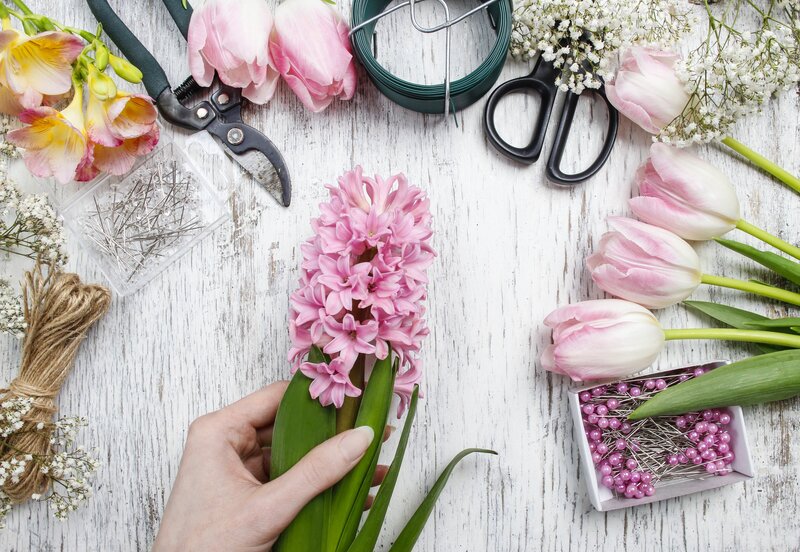The Minimalist Guide to Organizing Your Space and Life
Imagine waking up each day in a space that energizes, inspires, and supports your goals. If you've ever felt overwhelmed by clutter or chaos, adopting minimalist principles can completely transform your surroundings and your life. In this comprehensive guide, we'll dive deep into actionable minimalist strategies for organizing both your physical spaces and your daily habits.
Understanding Minimalism: More Than Decluttering
Minimalism is often misunderstood as simply getting rid of things, but it's truly about intentional living. The core of minimalism lies in prioritizing what truly matters, both in your environment and your routines. This minimalist approach offers myriad benefits:
- Enhanced mental clarity
- Less stress and anxiety
- Efficient use of time and space
- Increased productivity
- Greater sense of purpose and joy
Whether you're just starting out or looking to deepen your understanding, this minimalist guide will help you organize your space and life, turning chaos into calm.
The Benefits of Minimalist Organization
Adopting a minimalist lifestyle doesn't mean living with nothing. It means living with only what serves you. Here's how embracing minimalism can positively shape your world:
- More Time for What Matters: Decluttering your life and home means less cleaning, tidying, and searching.
- Boosted Focus and Productivity: A streamlined space helps you concentrate on your priorities.
- Financial Freedom: Spending less on unnecessary items can mean more savings, investments, or meaningful experiences.
- Eco-Friendliness: Consuming less reduces waste and your ecological footprint.
- Calmer Mind: Fewer distractions create room for mindful thinking and creativity.

Step-by-Step Minimalist Decluttering Guide
1. Start with a Vision
Minimalism is deeply personal. Before you begin, define your vision for an organized life:
- What does your ideal space look and feel like?
- How do you want your day-to-day routine to unfold?
Write down your vision and refer back when you feel overwhelmed. Keeping your goals in mind helps you make intentional choices as you pare down.
2. The Four-Box Method
When purging belongings, use the powerful Four-Box Method:
- Keep: Items you use regularly and love.
- Donate: Things in good condition that can help others.
- Sell: Valuables you no longer need but can generate income.
- Trash: Broken, unusable, or expired items.
Work room by room, spending focused time in each area. Never move onto another space until the current one is finished.
3. Declutter by Category, Not Room
While it's tempting to declutter by location, minimalist experts recommend sorting by category:
- Clothes
- Books
- Papers/documents
- Miscellaneous (electronics, kitchen, hobby items)
- Sentimental items
Tackle one category at a time. Take everything from the selected group and place it in a single area to review your true inventory.
4. Ask: Does This Add Value?
For each item, ask yourself, "Does this object add value or joy to my life?" If the answer is no, it's time to let go. This question guides thousands toward a minimalist lifestyle.
5. Letting Go of Emotional Clutter
Sentimental items are the toughest. Instead of keeping every memento, choose a handful of truly meaningful pieces and find creative ways to honor them, such as:
- Displaying a favorite photo in a beautiful frame
- Creating a digital scrapbook
- Repurposing fabric into a quilt or wall hanging
Remember: Memories live within us, not just in objects.
6. Organize What's Left
Now that only the essentials remain, organize each item so it's easily accessible, displayed, and appreciated. Here are a few tips:
- Use uniform containers for clean, aesthetic storage
- Label everything so you can find it quickly
- Maintain clear surfaces as much as possible
- Designate a home for every item
Minimalist Organization: Room-by-Room Strategies
Minimalist Bedroom Ideas
- Limit decor to a few treasured pieces
- Stick to neutral, calming colors for bedding and walls
- Keep nightstands clutter-free
- Use under-bed storage to maximize space
- Declutter your wardrobe to just what you wear and love
Streamlined Kitchen Techniques
- Eliminate duplicate appliances and utensils
- Keep countertops clear; store items in cabinets or drawers
- Group similar pantry items together in labeled baskets
- Adopt a minimalist approach to dishes and glassware
Living Room Minimalism
- Opt for multi-purpose furniture (like an ottoman with storage)
- Display only what you cherish on shelves
- Use baskets to contain remote controls, magazines, or toys
- Leave some open space for a feeling of calm and flow
Bathroom Simplicity
- Limit personal care products to daily essentials
- Use trays or baskets for organization
- Keep counters clear for a hotel-like appearance
- Regularly discard expired products
Minimalism Beyond Your Home: Organize Your Digital Life
Declutter Your Devices
- Delete unused apps
- Group similar apps into folders for efficiency
- Unsubscribe from email lists that don't add value
- Organize photos into clear albums, delete duplicates
- Back up important documents and store them securely
Social Media Minimalism
- Limit your accounts to those that truly serve you
- Unfollow or mute sources of negativity
- Limit screen time for increased mindfulness and productivity
Minimalist Routines: Create an Organized Life
Minimalism isn't just about what you own--it's about how you live each day. Here are routines to adopt as you organize your minimalist life:
1. The One-In, One-Out Rule
Whenever you bring a new item into your home, remove one similar item. This habit keeps your space balanced and prevents future clutter.
2. Daily Resets
Spend 10 minutes each evening resetting your space--put items back, wipe down counters, and prep for tomorrow. This simple routine fosters lasting peace and order.
3. Mindful Purchasing Decisions
- Ask, "Do I really need this?" before every purchase.
- Wait 24 hours before buying non-essential items.
- Choose quality over quantity to ensure longevity.
4. Simplify Your Schedule
- Prioritize obligations and say "no" to unnecessary commitments
- Block out regular self-care and downtime
- Batch similar tasks to save time
Overcoming Common Minimalism Challenges
Emotional Attachments
Letting go of gifts, inherited items, and souvenirs can be difficult. Remember, gratitude is not possession. You can appreciate the sentiment without keeping every object.
Family and Roommate Buy-In
Lead by example. Discuss the benefits of an organized, minimalist life and start small--organize your own belongings and shared spaces together.
Fear of Regret
- Store items in a "maybe" box for 30 days. If you don't use or miss them, let them go.
- Remember, most items can be replaced (though you likely won't need to do so!)
Minimalism for Well-being and Mental Health
The benefits of a minimalist lifestyle extend beyond an organized space. A well-organized, clutter-free life can:
- Reduce anxiety and overwhelm
- Promote mindfulness and clearer thought
- Encourage intentional living and gratitude
- Contribute to higher energy and joy
Minimalist home organization is a form of self-care--a gift you give yourself every single day.
Frequently Asked Questions About Minimalist Organization
- Do I need to get rid of everything to be minimalist?
No--minimalism is about keeping what's essential and valuable to you. - How often should I declutter?
A quick seasonal review works for most people. Small weekly resets prevent build-up. - Can families be minimalist?
Absolutely! Minimalism for families focuses on shared values and thoughtful consumption. - What do I do with items I can't let go of?
Store them out of sight and reassess later. Over time, you may find it easier to part with them.

Start Your Minimalist Journey Today
The journey to an organized, minimalist life is unique to everyone--but it always begins with a single step. Take some time today to reflect on what you truly need and value, then start decluttering a single drawer, corner, or category. Celebrate small wins and watch as your space and life gradually transform.
Minimalism is ultimately about freedom: freedom from clutter, overwhelm, and distraction, allowing you to focus on what brings you the most meaning and joy.
Final Thoughts on Minimalist Organization
Organizing your space and life through minimalist principles doesn't have to be a daunting process. With small, consistent actions, you can create a home and routine that invite clarity, peace, and purpose. Start with intention, be patient with yourself, and embrace the freedom that comes with letting go.
If you're ready to start your minimalist transformation, bookmark this guide, share it with a friend, and take the first step toward an organized, meaningful life!